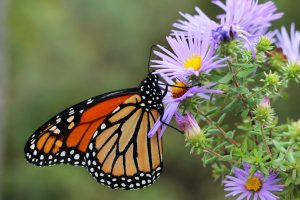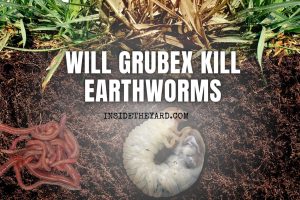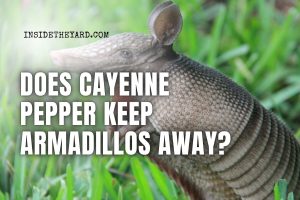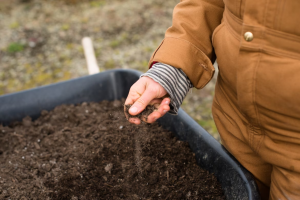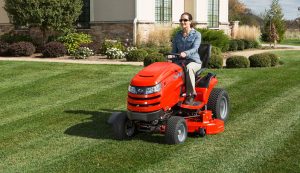What Are Wasps Good For? You Might Be Surprised
What are wasps good for? Wasps are suitable for many things that include pollination, insect control, and pest control as a nutrition source for many animals.
But wait, there is more! There are so many things that will change your perspective about how you think of wasps.
You’ve seen them flying around at picnics and barbecues, looking to make a meal out of the food scraps you leave behind. Wasps are known more for their nuisance factor than anything else, but they have plenty of positive uses too.
Read on to learn about the positive benefits of these yellow jackets and how you can make the most of their services in your garden and backyard.
Table of Contents
So What Are Wasps Actually Good For?
While most people (myself included) dread being stung by a wasp, let’s face it-wasps are not all bad. These insects play a vital role in keeping our ecosystem healthy.
Here are just some of the examples-
1. Wasps Prevent Insects From Overpopulating
Wasps are natural predators of many different insects, including aphids and caterpillars. In fact, wasps are so efficient at eliminating these pests that farmers actually pay them to rid their crops of them.
While we don’t have to worry about pest control in our gardens, they can still be useful in keeping bugs away from our plants.
2. Wasps Are A Natural Aphrodisiac For Insects And Birds
While we humans might not find wasps particularly attractive, they are actually a big turn-on for other insects and birds. This is because they produce a pheromone that attracts them to wasp nests, where they lay their eggs and reproduce in large numbers.
In fact, many insect species spend most of their lives inside these nests. If you want to attract more butterflies or bees into your garden, let some wasps build a nest nearby-they’ll do all the work for you.
3. Wasps Help Our Plants Grow By Pollinating Them
Like bees, wasps are able to pollinate flowers, transferring pollen from plant to plant and helping them reproduce. This is a big reason why you should let a few wasp nests grow nearby-they could end up doing more good than harm.
4. Wasps Are An Invaluable Resource For Scientists And Bioengineers
As we mentioned earlier, wasps are very efficient at eliminating pests from our crops and gardens. This is because they’re able to target specific insects with a high degree of accuracy-something that many pesticides can’t do.
Scientists have begun to take advantage of these abilities by training wasps to kill only certain species of bugs in order to reduce pesticide use and protect endangered species.
Bioengineers have also used wasps as inspiration for building tiny flying robots which can perform similar tasks in places where it would be too dangerous for humans to go.
5. Wasps Are A Delicious Food Source For Many Animals
While we humans don’t eat wasps, many other animals do-including birds, spiders, and even large insects. In fact, wasp nests are a favorite snack for some species of birds during their migration season.
While they might not be as tasty as honey or sugar, they can still provide valuable nutrients and energy to these animals.
6. Wasps Are A Natural Pest Control For Our Homes And Gardens
According to BBC Science Environment,
It has been estimated that the social wasps of the UK might account for 14 million kilograms of insect prey across the summer.
Wasps serve a vital purpose in our ecosystem. By letting them live near your home or garden, you can help keep pests under control while providing a natural food source for the local food chain.
7. Wasps Are An Excellent Source Of Nutrition
While we don’t recommend eating wasps, they can still provide us with a wide range of nutrients and health benefits.
In fact, many people in Asia and Africa actually eat wasp larvae as a delicacy-and they say that it tastes similar to bacon or shrimp.
Wasp larvae are also rich in protein, calcium, iron, and other essential vitamins and minerals that can help our bodies to stay healthy.
8. Wasps Larva Are Great For Fishing As Lure
While we generally recommend leaving wasp nests alone, you might find it interesting to try using wasp larvae as fishing bait.
Wasp larvae are extremely popular with fish and can often be used as effective lures to help you catch more and bigger fish than ever before.
They’re also much easier to find than other types of bait-and there’s a good chance that you have them in your garden right now.
What Is The Purpose Of Wasp Nest?
Although most people think that wasp nests are only used for reproduction, some wasp species actually use their nests for things like food storage and shelter.
The paper-like material of a wasp nest is made from chewed wood fibers mixed with saliva, so it’s not just pretty-it’s also very sturdy.
In fact, if you look closely at a piece of wasp nest under a microscope, you can see strands of fiber running in different directions and crossing over each other to create an incredibly strong structure.
Because of their strength, wasp nests have been used by humans since ancient times; however, because they are typically found in trees or on walls, they aren’t always easy to get your hands on.
What Role Do Wasps Play In The Ecosystem?
Wasp stings are very painful, but without wasps, much of Earth would be overrun with pests. Wasps are a form of natural insecticide that help kill off insects and clear out prey for birds like hawks and eagles.
Without wasps, there would be many more spiders and other species of parasitic insects on Earth. They keep pesky insects in check and play an important role in nature’s balance.
Another way that wasps benefit humans is by pollinating plants. When they feed on nectar, they transport pollen from one flower to another; in doing so, they make sure plants have healthy offspring and produce fruit or seeds. This is why you should never squash a wasp.
What Are Red Wasps Good For?
Red wasps feed on pests that can harm your garden. If you have a problem with aphids, caterpillars, and other common garden pests, red wasps are there to help. They’re particularly useful in organic gardens because they don’t use harmful chemicals to kill their prey.
What Are Paper Wasps Good For?
They are beneficial because they feed on caterpillars and other harmful insects. These wasps nest in trees and bushes around your home or garden. The paper wasp is not aggressive towards humans and will only sting if it feels threatened.
What Are Yellow Jacket Wasps Good For?
Yellow jacket wasps serve an essential function in nature by killing pest insects and other invasive species.
What Are Mud Wasps Good For?
Mud wasps help control pest populations. If you have an infestation of caterpillars or grasshoppers in your garden, then you can use mud wasps to take care of them. They are also great pollinators.
Frequently Asked Questions (FAQs)
What Would Happen If Wasps Went Extinct?
Wasps help in pollination. Without wasps pollinating crops can be decreased, and farmers could lose valuable harvests. And if wasps were to go extinct, that means spiders and other insects would be free to overrun every corner of our world. With no predators around to keep them in check, spiders would grow more. Overall, it can drastically hamper ecosystems.
Do Wasps Pollinate As Much As Bees?
While bees get most of our attention for their ability to pollinate flowering plants, wasps are capable of doing so as well. In fact, some wasp species, such as paper wasps, will go from flower to flower in search of nectar and may inadvertently pollinate certain plants during their hunts. However, it’s true that wasps generally aren’t as efficient as bees at pollinating large numbers of plants in a single visit because bees can carry large amounts of pollen.
Wrapping Up
And in your backyard, what are wasps good for; you might be surprised to learn. Wasps help pollinate plants and crops. To support our ecosystem, we must not kill insects like wasps.
By encouraging pollinators like wasps and planting more flowers in your garden, we can control some pests naturally. Overall we’ll have a balanced environment.
So, now you might not have any further confusion regarding wasps, do you? If yes, don’t forget to let us know.
